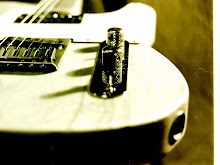
Last weekend, The Sunday Globe Magazine published a round-up of what they deemed “Boston’s 25 Greatest Pop Music Artist Ever.”
Like most of these lists, this one (compiled by three veteran Globe music writers) hits most of the obvious marks (Aerosmith, J. Geils Band, Boston, The Cars, Pixies et al), as well as a few more under-the-radar essentials (Jonathan Richman, Mission of Burma). Mainly, the list suffers from having to corral such a wide ranging cast of characters. Yes, Donna Summer and New Kids on the Block deserve to be on a list attempting to encompass all genres of popular music over the last half a century, but in whose world do those artist occupy the same space as Joan Baez?
I appreciate a wide range of musical styles, but this just seems a bit off. Such is the dilemma (and demise?) for major metropolitan daily newspapers these days: How do you succeed trying to be all things to all people?
Perhaps separate lists by genre would’ve made more sense, and allowed for inclusion of a few of the unfortunate omissions (the article even had a sidebar listing acts the compilers really regretted not being able to include in the top 25). Maybe the original assignment was for the Top 40 artists of all time and some evil editor (or lack of adequate advertising sales) dictated a last minute paring down of the list to a mere 25 spread over four or more genres of popular music.
Scope aside, I have no major beef with the list as published (see below). That said, I am disappointed (though not terribly surprised) that several of the acts that stand out to me as among the greats of the once proud and mighty Boston music scene were ignored.
In place of the disco artists and boy bands on the Globe’s list, I would have included 1980’s and 1990’s stalwarts like Push Push and Dennis Brennan, The Raindogs, O Positive, The Del Fuegos, The Neighborhoods, The Cave Dogs, and Scruffy the Cat, or even Shy Five – all of whom played an important part in making Boston a musical town to be reckoned with. And while most of these bands did this through numerous energy-filled, sweat-drenched appearances at clubs like The Rat, The Tam, The Paradise, The Channel, T.T. The Bear’s, Jack’s, Club III, etc., several also put out some outstanding records (a few of which actually sold beyond the borders of the Bay State).
Furthermore, since folk fits with rock more than disco and boy bands (at least in my world) and The Globe did acknowledge folkies James Taylor and Joan Baez, how could Bill Morrissey and Tracy Chapman be overlooked? And while Boston has long been a renowned blues-loving town, is there not a single homegrown blues musician worthy of inclusion? Ronnie Earl? Bonnie Raitt? Jerry Portnoy? James Montgomery? (C’mon! They merit a sidebar, at least!)
I do give the Globies extra kudos for the inclusion of Morphine, a band all-too-easily overlooked, but who were so far ahead of their time (or was it simply beyond time?) and everyone else in producing the ultimate in smokey, jazzy, bluesy, minimalist cool. (R.I.P., Mark Sandman!)
The Globe’s 25 Best
In an attempt to protect their content assets, The Globe no longer allows free online access to the full text of many of their articles. Too bad, in this case, because the write-ups that accompanied the list were entertaining, as well as insightfully and knowledgeably written. You can read a brief summary of the feature here, or shell out a few bucks to see the full unattractive web presentation of the article. Better yet, if you’re in New England, at least, see if your local library has a back issue of The Globe Magazine from 8/8/10.
The Boston Pop Hit Hit Parade
1. Aerosmith
2. Pixies
3. James Taylor
4. Donna Summer
5. The Cars
6. J. Geils Band / Peter Wolf
7. Joan Baez
8. New Edition
9. New Kids on the Block
10. Aimee Mann / ’Til Tuesday
11. Boston
12. Jonathan Richman and the Modern Lovers
13. Mission of Burma
14. The Mighty Mighty Bosstones
15. The Lemonheads (one of the most over-rated bands in pop history, in my book)
16. Dropkick Murphys
17. The Remains
18. Galaxie 500
19. Morphine
20. Amanda Palmer / Dresden Dolls
21. Guster
22. Tavares
23. Dick Dale (who knew, the king of surf guitar caught his first waves in Quincy?)
24. Tom Rush
25. The G-Clefs (Who?!)
Among the “we would have liked to have mentioned” artists listed by the authors in a sidebar were: Letters to Cleo and Buffalo Tom. Both worthy occupiers of the fringe of classic Beantown popdom, but neither quite to my taste.
FURTHER
• For a more detailed perspective on the glory years of the Boston music scene, check out Brett Milano’s excellent 2007 book, The Sound of Our Town. I’ve seen many a local club show over the years in the shadow of Brett’s benignly hulking figure.












